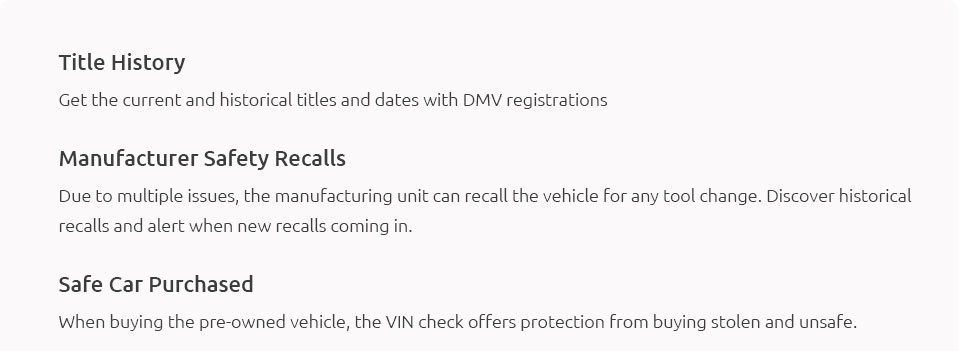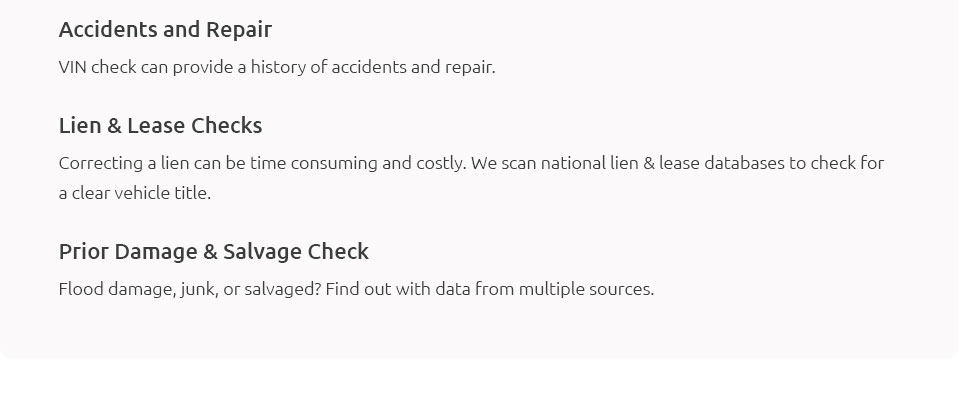 |
 |
 |
 |
 |
||
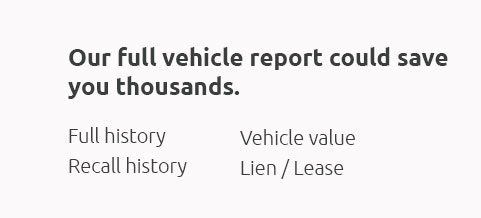 |
 |
|
 |
 |
|
 |
 |
 |
 |
||
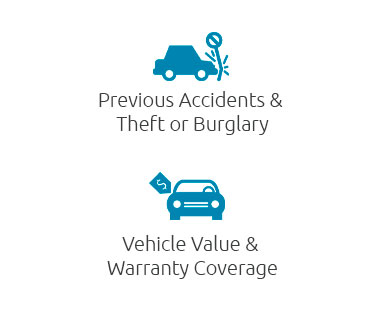 |
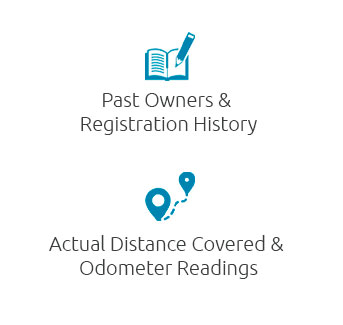 |
 |
 |
 |
 |
||||
|
||||
 |
 |
Unlocking the Secrets: What Can I Find Out with a VIN Number?The Vehicle Identification Number, or VIN, is akin to a car's fingerprint-a unique 17-character code that can reveal a wealth of information about a vehicle. Whether you're purchasing a used car, researching a vehicle's history, or merely curious about your own ride, the VIN can offer valuable insights. But what exactly can you find out with this mysterious string of letters and numbers? And perhaps more importantly, what are the common pitfalls to avoid when interpreting this data? First and foremost, the VIN can disclose basic details such as the manufacturer, make, model, and year of the vehicle. This is crucial when verifying the authenticity of a car, especially in cases where sellers might misrepresent this information. Moreover, the VIN can tell you where the vehicle was built, providing an additional layer of context that can be particularly useful for collectors or enthusiasts interested in the provenance of a car. Beyond these basics, a VIN can also reveal the vehicle's history through a detailed report. Such a report can include information on previous owners, accident history, and any recalls or service bulletins. This is where a motorcycle vin history check or a yamaha vin search can be invaluable, offering peace of mind by unveiling any hidden issues that might not be immediately apparent. However, it's essential to be cautious and discerning when interpreting these reports. One common mistake is assuming that a clean history report guarantees a flawless vehicle; remember, not all incidents are reported, and some may slip through the cracks. Furthermore, VIN numbers can be used to track open recalls and service campaigns, which is vital for ensuring the vehicle's safety and reliability. Ignoring this aspect can be a costly error, both in terms of repair expenses and potential safety hazards. On the flip side, some may rely too heavily on a VIN check without conducting a thorough physical inspection, which is another mistake to avoid. Always complement a VIN history report with a hands-on evaluation by a trusted mechanic.
In conclusion, a VIN number is a powerful tool that can demystify a vehicle's history and specifications, but it should be used wisely and in conjunction with other methods of verification. By understanding what a VIN can and cannot tell you, and by avoiding common missteps, you can make more informed decisions when buying, selling, or simply learning more about a vehicle. In the end, the VIN is a starting point, not the whole story-use it as a guide, but never let it replace due diligence and critical thinking. https://www.quora.com/How-do-I-find-a-name-using-a-VIN-number
What Goes Into a VIN? - VIN data is sorted out in gatherings, and an inquiry of your vehicle identification number can reveal to you a great deal ... https://www.youtube.com/watch?v=yuwO6jl-nnQ
... VIN - a vehicle identification number. Calling it a VIN Number is redundant, but it's commonly said anyhow. At first glance, that 17 digit code ... https://www.allstate.com/resources/car-insurance/where-to-find-vin
A VIN is a 17-character code that serves as a fingerprint for your vehicle. It holds crucial information about the car's manufacturer, ...
|

